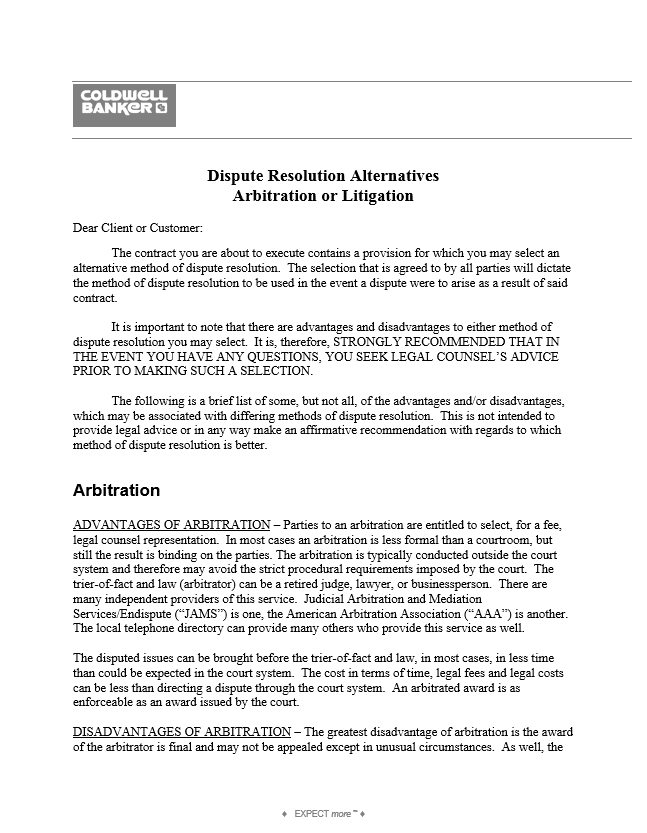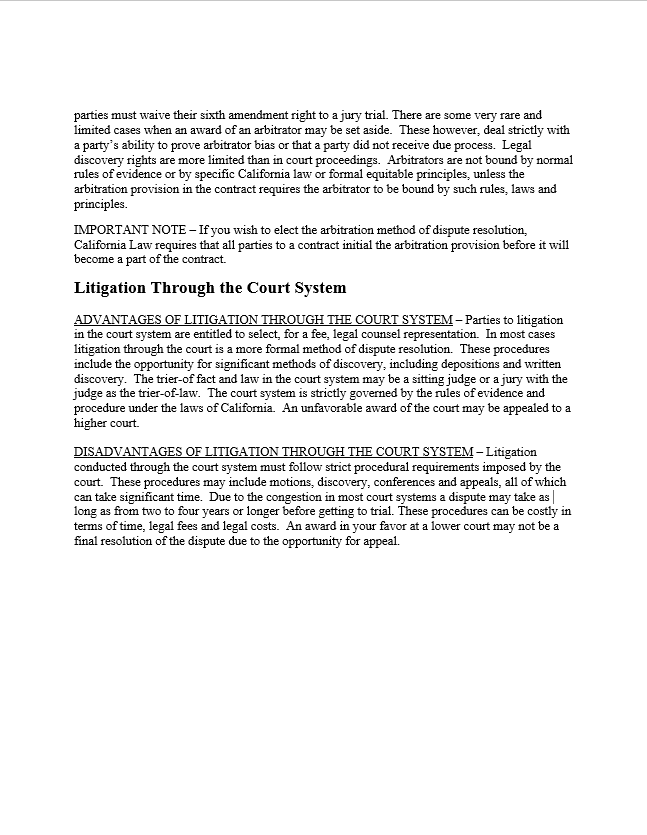-
Lot Size
-
Home Size852 sqft
-
Beds2 Beds
-
Baths1 Bath
-
Year Built1972
-
Days on Market48
Understanding the Fine Print: Arbitration and Litigation
- Real Estate Tips
- Encinitas real estate agent, home buying advice, home buying tips, linda moore blog, Linda Moore with Coldwell Banker, real estate tips
- March 29, 2016

Buying or selling your home is an exciting ordeal that is accompanied by immense rewards! Still, the process can be intimidating, especially when it comes to navigating legal intricacies. As your Coldwell Banker Real Estate agent, I work my hardest to ensure that everything goes smoothly as planned. However, conflicts can arise. Contracts can be daunting, but they serve the important purpose of protecting your assets and your peace of mind. This series of blogs provides an overview of a few common methods of contractual conflict resolution. I walked you through the basics of Liquidated Damages clauses and Mediation. This installment focuses on Arbitration and Litigation.
Arbitration and Litigation are more formal methods of conflict resolution than mediation. Legal counsel is strongly recommended for either method.
Arbitration and Litigation are conducted similarly, with a few key differences. Arbitration takes place outside of the court system, which often allows decisions to be made in a more timely manner and with less procedural costs. Standards for proceedings are also less strictly regulated. For arbitration to be an option when addressing a dispute, both parties must agree to the arbitration clause presented in the contract. Otherwise, the conflict will advance to litigation.
For more information, Coldwell Banker provides the following packet outlining advantages and disadvantages of Arbitration and Litigation. Of course, please contact me with any further questions!





